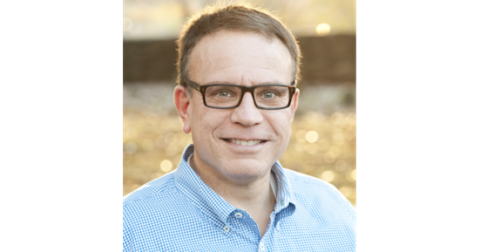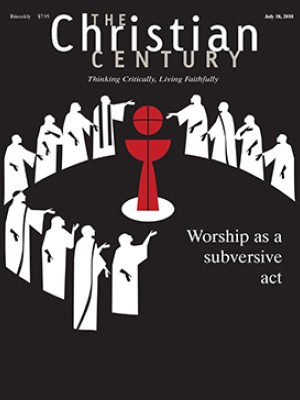Since before #MeToo, Boz Tchividjian has held abusers in church accountable
Tchividjian, a grandson of Billy Graham, founded GRACE as the Catholic abuse scandal was emerging in the early 2000s—alerting Protestants to the issue in their churches.

(The Christian Science Monitor) Basyle “Boz” Tchividjian has devoted most of his career to an emotionally and spiritually wrenching task.
A former prosecutor, he has been investigating charges of sexual misconduct and child abuse for nearly three decades. Since the mid-2000s, however, he has focused on houses of worship, especially those within his own evangelical Protestant tradition. He has handled hundreds of cases over the years, and he is still seared by the memories of them.
In 2003 Tchividjian, a grandson of Billy Graham, founded an organization called GRACE, or Godly Response to Abuse in the Christian Environment. He remains its executive director, as well as a law professor at Liberty University.
Read our latest issue or browse back issues.
“In the early 2000s, when the tragedy of the Catholic Church was just starting to emerge, I’m thinking to myself, and sharing with others, my goodness, Protestants for the most part have no clue that this is as serious as an issue in their own churches,” Tchividjian said.
During the past year, as the #MeToo movement has revealed widespread abuse from Hollywood to government to businesses, people across the country have told their stories of having been abused by religious leaders, using the tag #ChurchToo on social media.
Speaking up about abuse caused attorney and advocate Rachael Denhollander—who was the first of nearly 160 women to publicly speak about being abused as a teenager by Larry Nassar, the team doctor for USA Gymnastics—to be asked to leave her church.
“The reason I lost my church was not specifically because I spoke up,” she told Christianity Today. “It was because we were advocating for other victims of sexual assault within the evangelical community, crimes which had been perpetrated by people in the church and whose abuse had been enabled, very clearly, by prominent leaders in the evangelical community.”
If her abuser had been a pastor, she would have been vilified, she said.
When Tchividjian was a prosecutor in central Florida in the 1990s, he was already insisting that his district establish a new special unit to prosecute cases of sexual violence. By the time he left, his office had handled thousands of abuse cases, and Tchividjian said many involved a faith community—one of the reasons he decided to launch GRACE.
“It was just amazing how many church leaders and church members had no problem coming to court and testifying on behalf of the character of the defendant, and how few came in defense of the victim,” he said. “The Jesus that I know was always on the side of the wounded and the marginalized, and that’s not what’s happening here.”
He estimates that he and fellow prosecutors observed this pattern in about nine out of ten cases.
“We are still drawn and seduced by power and influence,” he said. “And so, as a result, when there is abuse within churches and faith communities, children are the ones who often fall through the cracks. The powerful and the influential, the perpetrators, those are the ones that we embrace.”
Tchividjian said religious institutions need both to set clear protocols and to begin to talk about the issue, which has long been taboo. He and his colleagues at GRACE have been trying to develop seminary curricula and training for communities of faith.
Last year he and a coauthor published The Child Safeguarding Policy for Churches and Ministries.
“If we’re going to change the culture of churches, we can’t just go in and do a weekend training on child protection or sexual violence,” Tchividjian said. “What happens with those, you go in for a weekend, you do a training, everyone feels sort of good that they’ve done this, they know a little more, which is good. But at the end of the day, if I go back to the church six months later, and I ask, how has this training impacted the culture of [how] this church carries on business? . . . Most of the time, if we’re being honest, not much.”
A version of this article appears in the print edition under the title “People: Basyle Tchividjian.”





